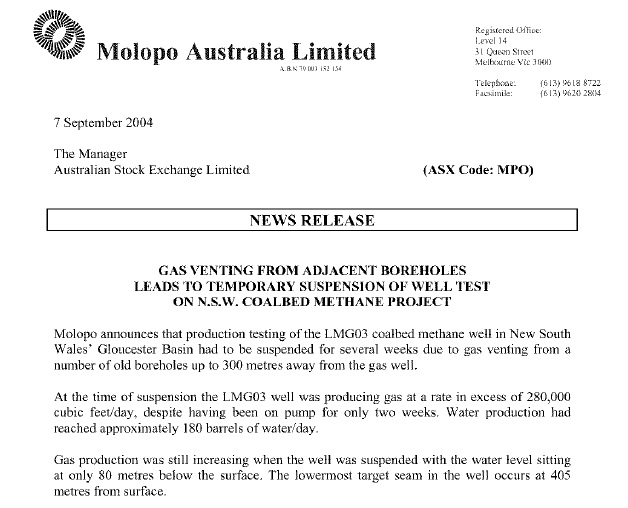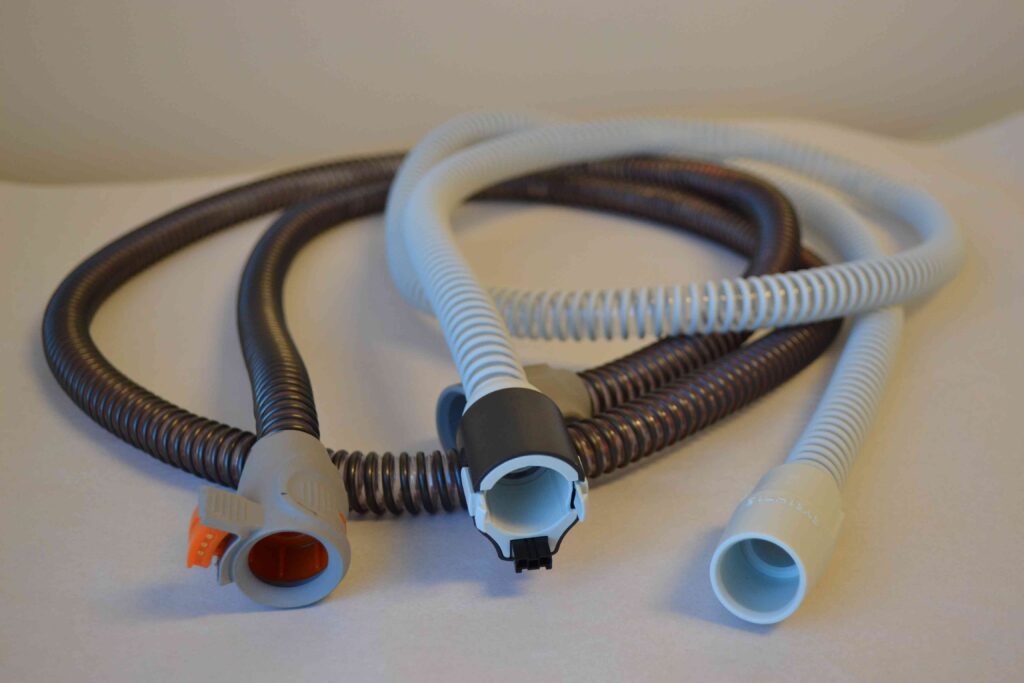As of December 12, 2013, AGL are waiting NSW State Government approval to recommence stimulation fracking of these same wells …
AGL’s Gloucester coal seam gas wells have already accidentally erupted methane 300m away from the wells
A coal seam gas well currently owned by AGL at Gloucester was shut down in 2004 when several boreholes up to 300 meters away unexpectedly blew off methane gas.
These are the same wells which consumer gas company AGL and federal Resources Minister McFarlane now want to start fracking before Christmas.
See also: sleep apnea machines for sale
These gas wells are located less than 300 metres away from family homes.
However, AGL insists that family homes within 300m of gas wells is not close: “Claims that wells will be close to houses is incorrect. The closest any well will be to a residence is around 300 metres.”
300m is less than the length of 25 school buses or 15 mining trucks and a man ran that distance in less than 31 seconds in 2000.
The NSW Government is currently considering whether AGL should continue fracking operations of these wells, with their announcement expected soon. The community at Gloucester has vowed to stop AGL.
An expert in Workplace Health & Safety said that in assessing the risk of a potentially dangerous industrial operation such as a gas well so close to where people live and work, there are two main considerations: the ‘likelihood’ of an accident, and the ‘consequence’ of that accident.
Looking at the AGL Gloucester gas wells, the likelihood is assessed as ‘high’ as a blow out has happened previously in the same wells. The consequence of as similar accident happening again is ‘extreme’ as multiple deaths of innocent residents may occur.
With families and farmers living and working within 300m of gas wells, the chances of accidental explosion from hot water systems or any flame is of major concern to residents.
COAL BED METHANE HAZARDS IN NEW SOUTH WALES
BY C. M. ATKINSON January 2005.
In September 2004, within a fortnight of the beginning of gas testing, a coal bed methane well north of Newcastle, NSW, was shut down as several boreholes up to 300m away began to blow off methane gas.
This was the first reported case of a serious migration of methane gas from coal bed methane operations in New South Wales.
Molopo Australia Limited has a 25% interest with the operating company AJ Lucas Coal technologies Pty. Ltd, in the Stratford gas prospect near Gloucester, approximately 100 kilometres north of Newcastle.
Drill hole LMG-03 was one of two test production drill holes completed by the partners and four coal zones with an aggregate thickness of 16 metres (some announcements quote 23 metres) of coal had been fracture stimulated with sand and water. A 6-12 months testing period began in late August 2004.
However, Molopo announced on 7th September that all tests had been halted after methane had erupted from a number of old boreholes in the area.
At the time a strong gas flow of 280,000 cubic feet/day had been recorded even though the water level was still about 300 metres above the coal seams.
Two and a half months later Molopo Australia Limited announced that test pumping of LMG-03 had resumed.
Three boreholes from an earlier coal exploration had started producing methane, and these along with eight other boreholes had now been sealed with concrete, the company explained.
The project manager explained in November that this accidental methane eruption had shown how good the lateral connections were in the reservoir.
In this case there were apparently no serious injuries and the methane gas migrated into nearby boreholes rather than houses, essential water supplies or livestock areas.
This example shows that even with only a partial withdrawal of the hydrostatic pressure, methane will migrate quickly and in unpredictable directions.
If the drill site conditions laid down by the State Government are similar at Stratford to those elsewhere, the most visible safety precautions would have been a wire fence and a locked gate.

Shares in Molopo Australia Limited (MPO) dropped 8% on 7 September 2004 after the company advised that work on its Coal bed methane project at New South Wales’ Gloucester Basin had been suspended because gas started venting from a number of old boreholes in the area.
More to read: Dealing with irritations that come from CPAP masks

